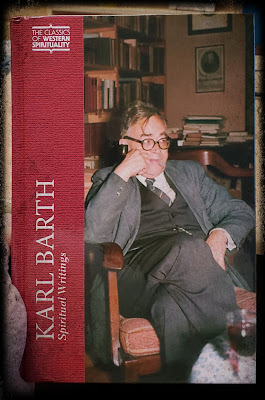Karl Barth: Spiritual Writings - A conversation with the editors

Join me for a conversation with Dr. Ash Cocksworth ( Twitter , University of Roehampton ) as we talk about our recently released co-edited volume, Karl Barth: Spiritual Writings , in the Paulist Press Classics of Western Spirituality series. During this conversation we talk about how Ash and I got to know each other and came to work together on this volume, what our favorite things about the book are, who should read the book, how politics relates to spirituality, and much more. Marmite even comes up at one point and a brilliant bit of wordplay by yours truly falls totally flat. It was a fun conversation. Ash and I were joined by my friend Dr. Kate Hanch ( Twitter , First St. Charles United Methodist Church ), who functioned as our special guest host and moderator for the conversation. Once you’ve ordered your copy of Karl Barth: Spiritual Writings , head over to Fortress Press to pre-order Kate’s forthcoming book, Storied Witness: The Theology of Black Women Preachers in 19th-Cen...

